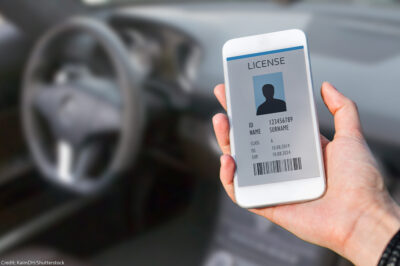Civil Rights Coalition Urges Detroit Board of Police Commissioners to Reject the Detroit Police Department’s Proposed Policy to Use Facial Recognition Technology
ACLU Submits Freedom of Information Request Seeking All Records Regarding Detroit Police Department’s Use of Facial Recognition Technology
DETROIT, Mich. — Today a diverse coalition of local civil rights organizations urged the Detroit Board of Police Commissioners to reject the Detroit Police Department’s (DPD) proposed policy to use facial recognition technology. The Board is scheduled to vote Thursday, Sept. 19, at 3pm, on a new facial recognition policy that DPD recently submitted for approval. While DPD’s revised policy narrows the intended use of the surveillance technology, the coalition opposes its use in any form, as research shows it would disparately impact people of color, will further fray relationships and trust between law enforcement and policed communities, and because the use of facial recognition in any form poses a grave danger to the privacy rights of everyone.
“The Detroit Police Department has been using this technology without any oversight for more than two years, and without the public’s knowledge or consent,” said Rodd Monts, ACLU of Michigan Campaign Outreach Coordinator. “We urge the Board to reject the use of this technology, but at the very least, the Board should postpone a vote until a deep analysis can be shared with the public on how this technology has been used, a right to which they are entitled.”
This morning the ACLU of Michigan submitted a Freedom of Information Act (FOIA) request to the City of Detroit and DPD, seeking records on how the technology is used, including, among other things, information about the safeguards DPD has put in place to protect against misuse of facial recognition technology, how DPD has used the technology to date, and whether DPD has considered the disparate impact the use of such technology has on communities of color. Therefore, the coalition urges the Board to postpone voting on the policy until a thorough review is completed based on the City of Detroit’s and DPD’s response to the ACLU’s FOIA request.
“At its core facial recognition is a way to do mass profiling, which is the last thing a majority Black city needs,” said Amanda Alexander, Detroit Justice Center Executive Director. “Rather than investing millions of dollars in facial recognition technology that instills fear and targets communities of color, we should be investing in services and resources so that people can prosper.”
The facial recognition software that the DPD purchased is capable of running real-time facial recognition scans on hundreds of live traffic cameras and Green Light video surveillance feeds currently operating in many businesses and other locations around Detroit. Adding facial recognition technology means the police could track who comes and goes from medical clinics, churches, schools, hotels, political rallies, AA meetings, and countless other sensitive locations throughout the city. The policy that DPD has proposed would allow it to conduct facial recognition searches of Detroiters who are not suspects in a criminal investigation, including anyone who might have been a bystander, witness, or simply an individual DPD deems to potentially have information it’s seeking.
Recent peer-review studies show that facial recognition technology inaccurately identifies people of color and women. In a majority Black city, this technology would lead to false identifications and heighten racially discriminatory policing in Detroit. Immigrant communities are also particularly at risk to federal agencies, including U.S. Immigration and Customs Enforcement (ICE) and Customs and Border Patrol, which have used facial recognition tools for enforcement actions.
“DPD should be taking steps to build trust in our neighborhoods which is a critical step toward truly making this city safer,” said Ryan Bates, executive director of Michigan United in Detroit. “Too many people feel unfairly targeted, including our residents who also have concerns about harassment by federal immigration agencies. The use of facial recognition technology would further erode trust between immigrant communities and police agencies.”
The coalition includes:
ACLU of Michigan; Detroit Justice Center; James and Grace Lee Boggs Center to Nurture Community Leadership; Metro-Detroit Political Action Network; Arab American Civil Rights League; Detroit Community Technology Project; CAIR Michigan; Detroit Hispanic Development Corp; Michigan United; Progress Michigan; We the People; Color of Change; ACCESS; Michigan Roundtable for Diversity and Inclusion; Detroit FORCE; MOSES; Michigan Immigrants’ Rights Center; and Fight for the Future.



